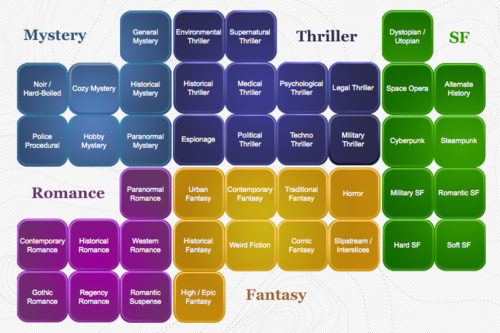Sometimes someone says something that organizes what you heretofor have known in a fuzzy, muddled sense with crystal clarity. Dan Blank did that for me, in a recent article on Writer Unboxed, when he shared his epiphany: Your Audience is Unorganized.
"You want to find a group of ideal readers for your books, but do you ever feel like you are herding cats?
"The truth is: your audience is unorganized. They do not stack neatly, they don’t always form logical groupings, and they do everything possible to obscure their tastes and behaviors from your view."
Why would we think our audience is organized?
"You hear of others’ success and begin to feel that there is a secret that they found and no one told you about. So we begin to look for best practices, shortcuts, and magic buttons.
"As if there is some secret place your readers are hiding: some mysterious section of Amazon or Goodreads, or some social media hashtag that no one told you about, and these things have already done the hard work of bringing together EXACTLY the right people who want to buy your books. And once you find this magic button, all you have to do is press it."
But there is no such thing as a pre-assembled audience: this is a strictly DIY affair.
What does that mean?
Dan offers the analogy of a wedding--your wedding--where the chapel or reception hall is filled with people who are there for one reason: you (and your new spouse). You, not some ready-made marketing list, are the organizing principle.
So how do you organize your audience? Dan uses the example of the lone dancing guy at an outdoor concert who started a dance mob.
"I’m going to end on with this classic video by Derek Sivers, who makes the point in a unique way:"
"He frames the message as being about “leadership,” but I think it applies here as well. That “lone nut” dancing guy didn’t come to this concert and find a group of other dancers. So, he started dancing. Then he found one other person who would join him. Then two. And so on."
Read the full article here, and then come back and tell us what you think.
Deren Hansen is the author of the Dunlith Hill Writers Guides. Learn more at dunlithhill.com.



